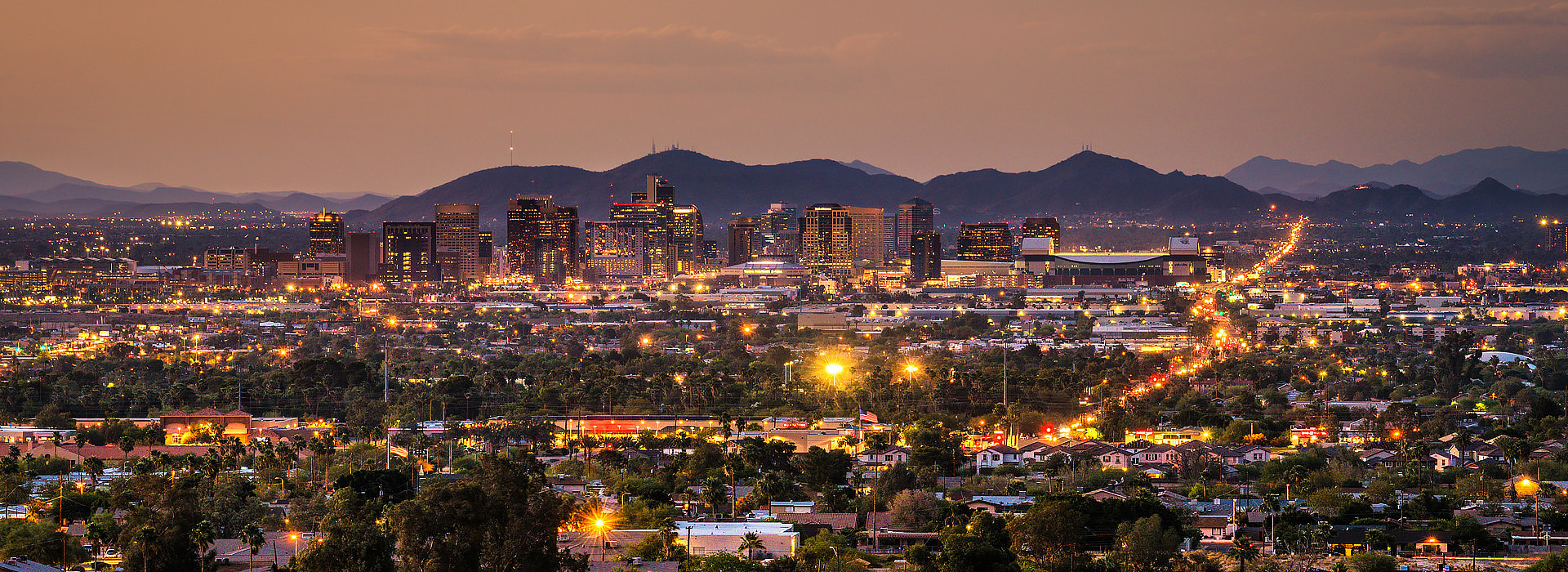A pedestrian was run over when two vehicles collided at the Phoenix intersection of 24th Street and Osborn Road.
Pedestrian Hit When Two Cars Collide
The crash, which involved an SUV and a passenger car, resulted in three people being taken to the hospital. According to witnesses, the man who was crossing the street was hit and dragged by the SUV. All involved remained on the scene until the authorities arrived.
It’s something you hear on the news every few days: a pedestrian is injured or killed when an out-of-control or unaware driver strikes them while they are walking on the side of the road. Sometimes it’s a person that was jogging without protective gear, or sometimes it’s because the driver was drunk.
These accidents, unfortunately, happen quite often. That’s why it’s important to know how to protect yourself, but also what to do if you have been injured in a pedestrian-involved accident.
Pedestrian Accident Statistics
According to the AZ Department of Transportation, there were 1,575 car-pedestrian accidents in Arizona in 2012, resulting in 1,354 injuries and 131 deaths.
These are striking numbers, and even more sad because most of them could have been avoided if people - drivers and pedestrians - had acted more safely.
Pedestrian Safety
Although popular belief would seem otherwise, pedestrians do not always have the right of way when crossing streets. This is a key aspect to avoiding pedestrian accidents. A pedestrian’s right of way is actually limited to crossing properly - crossing at an intersection with traffic control signals means a pedestrian must obey the signals, and being within a crosswalk does not excuse violating the signal.
Avoid Pedestrian Accidents: Observe Marked and Unmarked Crosswalks
Crosswalks can be either marked, with obvious lines designating a pedestrian path, or unmarked. Marked crosswalks are often found at places other than intersections. Unmarked crosswalks only occur in intersections as a type of extension of the sidewalk (paved or unpaved) across the street. Arizona law defines a sidewalk as: The portion of a street between the curb lines or edges of the road and the adjacent property lines, intended for the use of pedestrians.
Crossing at Other Intersections
Pedestrians crossing streets at places other than marked or unmarked crosswalks are required by law to yield to the right of way to all vehicles. When two adjacent intersections have traffic control signals, pedestrians are forbidden to cross the street outside of the marked crosswalks, for example in the middle of the block.
Practicing Due Care Pedestrian or Not
Just because a pedestrian violates the street crossing laws motorists are not relieved of all responsibility. There is a duty of “due care” on drivers to avoid hitting and injuring pedestrians who do not obey the law. Regardless, pedestrians should always cross at an intersection if one is nearby, stay within the marked or unmarked crosswalks, and obey traffic control signals if they exist. Do not assume that others will follow the law – you can accept right of way when it is presented, but you cannot demand it.
Arizona Law
According to Arizona law, pedestrians have an obligation to never, “suddenly leave any curb or other place of safety and walk or run into the path of a vehicle that is so close that it is impossible for the driver to yield” (A.R.S. § 28-792).
What you Need to Do to Be a Good Pedestrian
Here are some precautions to take to ensure you are a good pedestrian:
- Be cautious
- Remain alert when crossing streets at busy intersections.
- Increase how visible you are to cars and trucks by wearing bright reflective clothing.
- If you are walking at night, carry a flashlight or wear reflective clothing that will catch car headlights.
- If there are no sidewalks where you are walking, walk facing traffic so you can see oncoming cars and so they can see you.
- Teach your children to look in both directions before crossing streets.
- If possible, only cross at designated crosswalks.
- Don’t assume being in a crosswalk means you are safe.
- Make sure you can hear the road and everything on the road, including cars approaching from behind.
What you Need to Do to Be a Good Driver
Here are some precautions to take to ensure you are a good driver:
- Be cautious
- Remain alert when approaching streets or busy intersections.
- Make sure you are aware of any pedestrians that might be entering the road or on the road (running or bicyclists).
- If you are driving at night, make sure all of your headlights and tail-lights are working, and that you are clearly visible.
- Make sure your car is properly maintained. This includes frequent brake checks.
- Pay special attention when entering or exiting parking lots, as often you will need to cross a sidewalk to enter.
- Follow posted speed limits.
- Avoid distractions including texting, phone calls, or reaching for things that have fallen.
Even when people act with caution, accidents still occur. That’s why it’s advised that you work with a personal injury attorney. No one has intentions of hurting anyone, but when both sides of a lawsuit - both plaintiff and defendant - feel that they acted correctly, these cases can be difficult to come to an agreement on.
Personal Injury Attorney
A personal injury attorney handles any number of things that are “personal injuries,” including: car and bus accidents, elevator accidents, accidents that occur on city streets, bed bugs, dog bites, and construction accidents and wrongful deaths.
A personal injury can be defined as a physical and/or mental injury that occurs because of someone else’s negligence, intentional actions, or strict liability.
Negligence: when another party fails to act with reasonable care. For example: if you suffer physical injuries as the result of a driver rear ending you because they are not paying attention, the injuries could be deemed a personal injury due to negligence.
Intentional Harm: when another person sets out to hurt you. Examples include: battery, assault, and false imprisonment.
Strict Liability: if you are injured by a product (such as a malfunctioning car), anyone involved in the production, distribution, or sale of the defective product can be held responsible.
Steps in Personal Injury Lawsuit
There are some things that a personal injury attorney will immediately want to do. We outline them below.
Reconstructing an Accident
When an accident occurs, and there are no eye-witnesses, it’s hard to understand exactly what occurred. The accident needs to be reconstructed by investigators in order to get a full understanding. Once that understanding has been given, liability can be assessed. The dynamics, methodology, and principles involved in reconstructing a pedestrian accident are slightly different than those used to reconstruct car accidents. An investigator looks at car speed as well as pedestrian speed (which can be very difficult to determine), perception and reaction time, as well as highway design and sign placement. The pedestrian’s impact kinematics (which is how the pedestrian moved at or through the impact phase of the collision) are reconstructed. Once all these factors have been identified, a lawyer can build negligence or wrongful death case based on the investigator’s findings.
Determining Negligence During an Accident
In the case of pedestrian and car accidents, negligence can be assigned to both sides of the accident: to the driver, or to the pedestrian. Drivers are considered negligent if they neglect to do the following:
- Pay attention to surroundings
- Adhere to posted speed limits
- Yield at stop lights and cross-walks
- Properly use turn signals
- Adhere to Arizona state traffic laws
A pedestrian can be considered negligent if they do the following:
- Run-out in front of cars
- Illegally jaywalk
- Fail to use designated cross-walks
- Ignore pedestrian signals at traffic lights
- Fail to pay attention to surroundings and traffic situations
Working with a Personal Injury Attorney After an Accident
If you have been a victim in a car, truck, pedestrian, or bicycle accident, you should immediately contact a personal injury attorney that understands the specific laws around these types of accidents. They will be able to perform a full investigation and build your case. It’s crucial that you work with someone that knows the intricacies of the laws surrounding these types of cases as well as your specific state’s laws. The attorneys at Personal Injury Attorneys PLLC have experience handling personal injury cases such as car accidents, pedestrian accidents, and bicycle accidents. They will help build a case to ensure you receive everything you need to recover from your specific accident.


